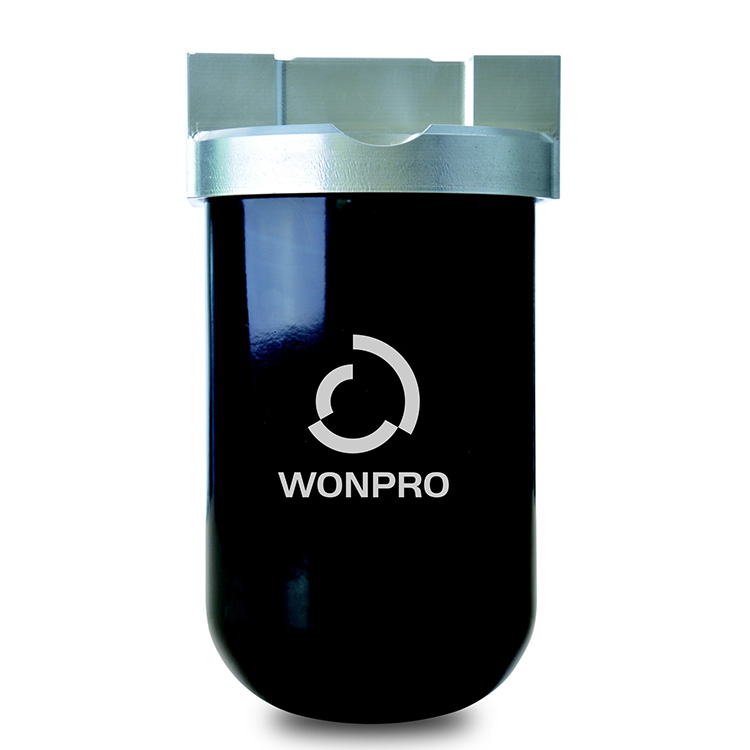How Does an Oil Filter Improve Engine Performance and Longevity?
2025-11-13
Oil filters are crucial components in modern engines, designed to maintain clean oil circulation and ensure smooth operation. By removing contaminants, metal particles, and sludge from engine oil, oil filters protect vital engine parts from wear and damage.
What Are the Key Advantages of Using High-Quality Oil Filters?
High-quality oil filters serve as the first line of defense against engine contamination. They offer several significant advantages for both vehicles and industrial machinery:
-
Engine Protection – Oil filters trap harmful particles and debris that can cause premature engine wear.
-
Enhanced Oil Longevity – By removing impurities, filters extend the effective lifespan of engine oil.
-
Improved Engine Efficiency – Clean oil reduces friction between moving components, maintaining optimal engine performance.
-
Reduced Maintenance Costs – Frequent engine repairs caused by contaminated oil are minimized with reliable oil filtration.
-
Environmental Benefits – Efficient filters reduce oil consumption and prevent excessive waste, contributing to environmental protection.
Detailed Product Parameters
The following table highlights the key specifications of a standard high-performance oil filter used in automotive and industrial applications:
| Parameter | Specification |
|---|---|
| Filter Type | Spin-on / Cartridge |
| Filtration Media | Cellulose, Synthetic Fiber, or Blended |
| Micron Rating | 10–25 microns |
| Flow Rate | 40–60 L/min (automotive), up to 200 L/min (industrial) |
| Pressure Resistance | Up to 6 bar (automotive), up to 12 bar (industrial) |
| Operating Temperature Range | -40°C to 150°C |
| Compatibility | Petrol, Diesel, and Hybrid engines |
| Life Span | 5,000–15,000 km (automotive) |
| Material of Housing | Steel or High-Grade Aluminum |
These parameters ensure that oil filters effectively remove harmful particles without restricting oil flow, guaranteeing maximum engine performance.
Why Is the Function of an Oil Filter Critical to Engine Health?
Oil filters are not merely supplementary components; they are essential to the long-term reliability of engines. The primary function is to remove particulate matter from engine oil. Contaminants such as metal shavings, carbon deposits, and dirt can accumulate over time, causing abrasion and corrosion in engine components.
-
Particle Trapping: High-performance filters use dense media layers to capture even microscopic particles.
-
Flow Maintenance: Filters are designed to balance filtration efficiency with oil flow, ensuring engines receive sufficient lubrication.
-
Pressure Regulation: Some oil filters include bypass valves that prevent oil starvation during high-pressure conditions or when filters become clogged.
Advanced oil filters now incorporate synthetic fiber media capable of removing particles smaller than 10 microns. This allows for superior engine protection, particularly in high-stress industrial machinery or high-performance vehicles.
How Are Oil Filter Technologies Evolving for the Future?
Oil filter technology continues to advance, focusing on higher efficiency, longer lifespan, and compatibility with modern engines and alternative fuels. Key trends include:
-
Synthetic Filtration Media: Synthetic fibers provide better contaminant trapping, higher flow rates, and extended life compared to traditional cellulose media.
-
Eco-Friendly Designs: Many filters now use recyclable materials for housing and biodegradable filtration media.
-
Enhanced Bypass Valve Systems: Modern designs prevent engine oil starvation while maintaining consistent filtration performance.
-
Smart Monitoring: Some advanced systems integrate sensors to monitor filter condition and alert users when replacement is needed.
-
Industry-Specific Solutions: Filters are tailored for high-performance racing engines, heavy-duty industrial engines, and hybrid or electric vehicles with oil-based lubrication systems.
These innovations ensure oil filters meet the rising demands of modern engines, improving fuel efficiency, reducing emissions, and decreasing overall maintenance costs.
Common Questions About Oil Filters
Q1: How often should an oil filter be replaced?
A1: Oil filters should be replaced according to the vehicle manufacturer’s recommendation, typically every 5,000–15,000 kilometers for automotive engines. Industrial machinery may require more frequent changes depending on operating conditions and contamination levels. Regular replacement ensures consistent oil flow and prevents engine damage.
Q2: Can using a higher-grade oil filter improve engine performance?
A2: Yes, high-grade filters with synthetic media capture finer particles and maintain higher flow rates, which reduces engine wear and enhances efficiency. Improved filtration also extends oil life, contributing to lower maintenance costs and improved fuel economy.
Conclusion: Choosing the Right Oil Filter for Maximum Engine Protection
Selecting the right oil filter is essential for maintaining engine health, improving efficiency, and reducing maintenance costs. Filters should be chosen based on engine type, operating conditions, and manufacturer specifications. Modern filters, with advanced synthetic media and robust bypass valve systems, provide superior protection and durability, ensuring engines operate at peak performance.
Wonpro offers a range of high-quality oil filters designed to meet these exacting standards. With superior materials, advanced filtration technologies, and a focus on long-term engine protection, Wonpro ensures reliability across automotive and industrial applications. For inquiries or to explore our full range of products, contact us today.



